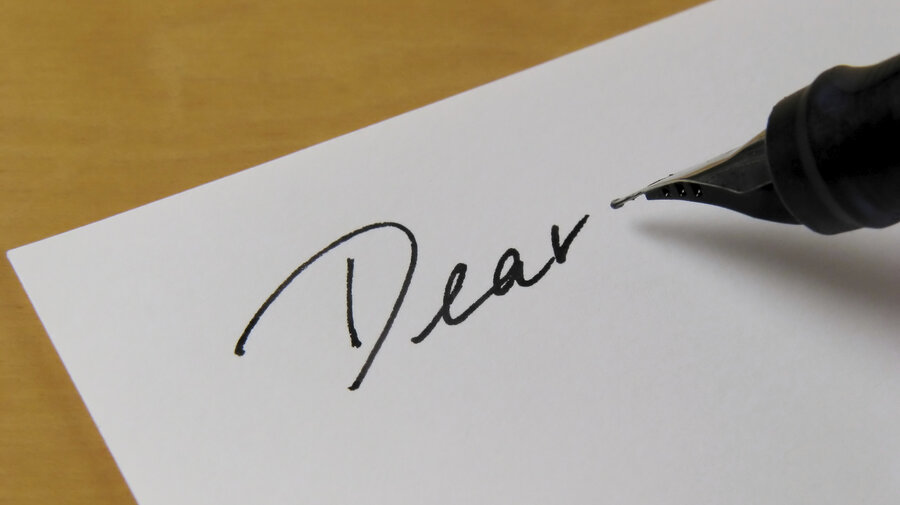What is the letter writing and do explain
Letter Writing
Before the advent of modern technology made communication so easy, the art of writing a letter was considered an important requirement. Even today a letter is an important means of communication in both the workspace as well as our personal lives. So let us educate ourselves with the nuances of letter writing.
Now that E-mails and texts and other such forms have become the norm for communication, the art of letter writing has taken a backseat. However, even today a lot of our communication, especially the formal kind, is done via letters. Whether it is a cover letter for a job, or the bank sending you a reminder or a college acceptance letter, letters are still an important mode of communication. Which is why it is important that we know the intricacies of letter writing.

(Source: npr)
Types of Letters
Let us first understand that there are broadly two types of letter, namely Formal Letters, and Informal Letters. But then there are also a few types of letters based on their contents, formalities, the purpose of letter writing etc. Let us have a look at the few types of letters.
- Formal Letter: These letters follow a certain pattern and formality. They are strictly kept professional in nature, and directly address the issues concerned. Any type of business letter or letter to authorities falls within this given category.
- Informal Letter: These are personal letters. They need not follow any set pattern or adhere to any formalities. They contain personal information or are a written conversation. Informal letters are generally written to friends, acquaintances, relatives etc.
- Business Letter: This letter is written among business correspondents, generally contains commercial information such as quotations, orders, complaints, claims, letters for collections etc. Such letters are always strictly formal and follow a structure and pattern of formalities.
- Official Letter: This type of letter is written to inform offices, branches, subordinates of official information. It usually relays official information like rules, regulations, procedures, events, or any other such information. Official letters are also formal in nature and follow certain structure and decorum.
- Social Letter: A personal letter written on the occasion of a special event is known as a social letter. Congratulatory letter, condolence letter, invitation letter etc are all social letters.
- Circular Letter: A letter that announces information to a large number of people is a circular letter. The same letter is circulated to a large group of people to correspond some important information like a change of address, change in management, the retirement of a partner etc.
- Employment Letters: Any letters with respect to the employment process, like joining letter, promotion letter, application letter etc.
Letter Writing Tips
Now that we have learned the basics of communicating via letters and the types of letters as well, let us focus on some tips for the actual letter writing.
1] Identify the type of letter
This obviously is the first step of the letter writing process. You must be able to identify the type of letter you are to be writing. This will be dictated by the person the letter is addressed to and the information that will be conveyed through the letter. Suppose you were writing to the principal of your college to ask for leave, this would be a formal letter. But say you were writing to your old college professor catching up after a long time. Then this would be a personal (informal) letter.
2] Make sure you open and close the letter correctly
Opening a letter in the correct manner is of utmost importance. Formal letters open with a particular structure and greeting that is formal in nature. Informal letters can be addressed to the person’s name or any informal greeting as the writer wishes.
Even when closing the letter, it must be kept in mind what type of letter is being written. Formal letters end respectfully and impersonally, whereas informal letters may end with a more personal touch.
3] Establish the main intent of the letter
Once you start writing, make sure to get to the point as soon as possible. Especially in formal letters, it is important to immediately make clear the purpose of the letter.
4] Be careful of the language
A letter is always supposed to be polite and considerate. Even if it is a complaint letter, the point must be made in a careful and courteous manner. So it is necessary to use polite expressions and civil language in all types of letters.
5] Length of the letter
And the other important factor to be considered is the length of the letter you are writing. It should be kept in mind that formal letters are generally to the point, precise and short. Lengthy formal letters tend to not have the desired effect on the reader. The length of an informal letter is determined by the message in the letter and the relation to the recipient.

Comments
Post a Comment